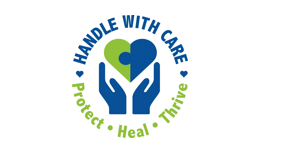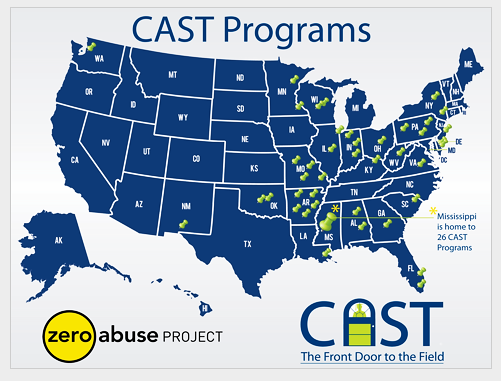
On June 13, 2019, OJJDP hosted a public meeting of the Coordinating Council on Juvenile Justice and Delinquency Prevention. The meeting highlighted innovative and effective approaches to improve community responses to child abuse and neglect and children’s exposure to violence.
In his introductory remarks, then-Principal Deputy Assistant Attorney General Matt M. Dummermuth said that child abuse “remains an intractable, and serious, problem.” In 2017, an estimated 1,720 children—or about five children per day—died from abuse in the United States.“If kids who are abused and neglected are fortunate enough to escape lasting physical harm, there’s a good chance they will suffer short- and maybe even long-term psychological and emotional injury,” Mr. Dummermuth said.
According to the meeting’s first presenter, Victor Vieth, Director of Education and Research at the Zero Abuse Project and founder of the National Child Protection Training Center (NCPTC), a major gap in addressing child abuse is the lack of quality training available for undergraduate and graduate students who plan to enter professions—such as social work, education, law, medicine, and ministry—where they may encounter cases of child maltreatment.
To address this issue, Winona State University partnered with NCPTC and the National District Attorneys Association to create an intensive, interdisciplinary minor for undergraduates called Child Advocacy Studies Training (CAST).Shown above at the June 13, 2019, meeting of the Coordinating Council on Juvenile Justice and Delinquency Prevention are Caren Harp, OJJDP Administrator and the Council’s Vice Chair; and Matt M. Dummermuth, then-Principal Deputy Assistant Attorney General, Office of Justice Programs.
CAST educates future professionals to more effectively prevent, identify, and respond to child maltreatment and, among other features, provides students with real-world experience in a classroom setting. The program has been implemented nationally in colleges and universities. CAST programs for graduate students have been established in medical schools, law schools, and seminaries.
The meeting's second presenter, Andrea Darr, Director of the West Virginia Center for Children’s Justice, provided an overview of the center’s implementation of the Handle with Care program, which aims to ensure that children who are exposed to trauma receive appropriate interventions so they can succeed in school to the best of their ability. The program is currently being put into practice in 27 states. 
Handle with Care alerts a child’s school or child care agency that the child was on the scene of a police action in the last 24 hours and was exposed to a traumatic event such as an incident of domestic violence, a shooting in the neighborhood, or a drug raid at the home. Police are trained to identify children at the scene, find out where they go to school or daycare, and send the school or agency an email, text, or fax requesting that the child’s teachers and school staff be on the alert for possible academic, emotional, or behavioral problems.
As part of the center’s pilot program launched at a Charleston, WV, elementary school in 2013, teachers have been trained on the impact of trauma on learning, and are incorporating interventions to mitigate the negative impact of trauma for identified students, including postponing testing, small-group counseling by school counselors, and referrals to external counseling, social service, or advocacy programs. In 2015, West Virginia state police launched Handle with Care programs statewide, Ms. Darr said, and stakeholder meetings are now held in every West Virginia county.

The Coordinating Council on Juvenile Justice and Delinquency Prevention is an independent body within the executive branch of the federal government operated under the Federal Advisory Committee Act. The council's primary functions are to coordinate federal juvenile delinquency prevention programs, federal programs and activities that detain or care for unaccompanied juveniles, and federal programs relating to missing and exploited children.
The council is made up of 22 members—13 ex officio and affiliate members and 9 practitioners. The ex officio members are: the Attorney General; the Administrator of the Office of Juvenile Justice and Delinquency Prevention; the Secretaries of the U.S. Departments of Education, Health and Human Services (HHS), Housing and Urban Development, and Labor; the Assistant Secretary of Immigration and Customs Enforcement in the U.S. Department of Homeland Security; the Director of the Office of National Drug Control Policy; and the Chief Executive Officer of the Corporation for National and Community Service. Affiliate members are the Secretaries of the U.S. Departments of Agriculture, Defense, and the Interior, and the Administrator of the Substance Abuse and Mental Health Services Administration of HHS. The nine juvenile justice practitioner members are appointed by the Speaker of the House of Representatives, the Senate Majority Leader, and the President of the United States. In accordance with the Federal Advisory Committee Act, the Council holds public meetings up to four times a year in which members discuss activities to facilitate and support cross-agency coordination.
